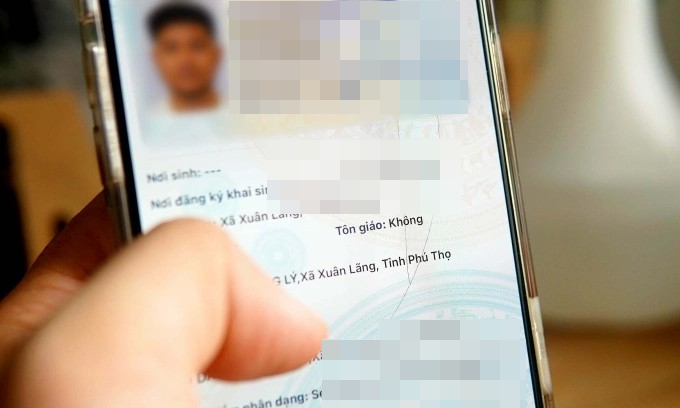Since July 1, the VNeID application has updated users’ places of origin to reflect changes under Vietnam’s new two-tier local government model.
Many users have eagerly logged in to see their updated personal details - such as birthplace, registered residence, current address - and promptly shared screenshots on social media.
However, many of these posts reveal unblurred information, exposing full personal data including identification numbers, place of birth, residence details, distinguishing features, and the issuance date of their citizen ID.
Cybersecurity experts warn that casually sharing these details online can lead to severe data breaches. Publicizing such personal information leaves users vulnerable to digital crimes - especially with modern technologies like AI making it easier for criminals to commit fraud, impersonation, and theft.
With enough public data, scammers can create comprehensive profiles of their targets and execute schemes like identity fraud or financial scams.
Users are advised to think twice before flaunting updated ID info online. If they choose to share, they should carefully obscure personal details and set their privacy settings to “Friends Only” to limit exposure.
The Cybersecurity and High-Tech Crime Prevention Department of the Ministry of Public Security has also issued warnings about fraudulent schemes targeting VNeID users.
Scammers are impersonating officials from newly restructured wards or communes, calling residents to trick them into clicking malicious links or installing fake VNeID apps that contain malware.
These criminals often pose as local authorities - using mobile numbers or spoofed hotlines - and inform residents about administrative restructuring, urging them to “update” their records.
They may already have personal data and use it to gain trust before leading victims to malware-laced links or fake apps.
Once users download these apps or follow the links, hackers can take control of their devices, harvest OTP codes, or use facial recognition data to access banking apps and steal funds.
To combat this, the Ministry advises:
Never follow instructions from unknown callers claiming to be local officials.
Always visit your local ward or commune police office directly for administrative updates.
If you’ve accidentally clicked a suspicious link or installed a fake app:
Contact your bank immediately to lock your account.
Power off your device to stop access to OTPs or biometric data.
Report the incident to the nearest police station for investigation.
Official VNeID app download links:
iOS (App Store): VNeID on App Store
Android (CH Play): VNeID on CH Play
Du Lam
